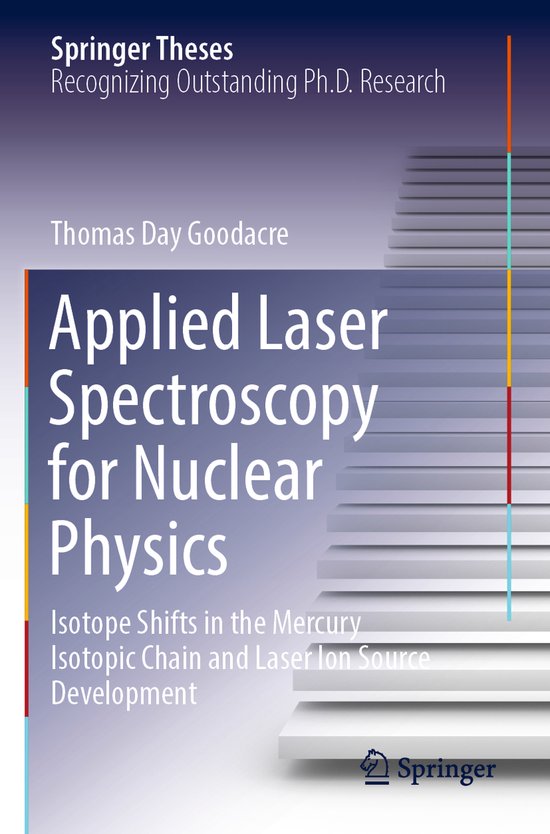Springer theses applied laser spectroscopy for nuclear physics

Uiterlijk 28 januari in huis
This thesis explores two distinct applications of laser spectroscopy: the study of nuclear ground state properties, and element selective radioactive ion beam production. It also presents the methods and results of an investigation into isotope shifts in the mercury isotopic chain. These Resonance Ionization Laser Ion Source (RILIS) developments are detailed, together with an RILIS ionization scheme that allowed laser ionized ion beams of chromium, germanium, radium and tellurium to be generated at the Isotope Mass Separator On-Line (ISOLDE) facility.
A combination of laser spectroscopy with decay spectroscopy and mass spectrometry unambiguously demonstrated a cessation of the extreme shape staggering first observed in the 1970s and revealed the characteristic kink at the crossing of the N=126 shell closure. A series of RILIS developments were required to facilitate this experiment, including mercury “ionization scheme” development and the coupling of the RILIS with an arc discharge ion source.
Laser spectroscopy has since become a powerful tool for nuclear physics and the Resonance Ionization Laser Ion Source (RILIS), of the ISOLDE facility at CERN, is a prime example. Highlighting important advances in this field, the thesis offers a unique and revealing resource.
- 1 Bekijk alle specificaties
Taal: en
Bindwijze: Paperback
Oorspronkelijke releasedatum: 28 september 2022
Aantal pagina's: 129
Hoofdauteur: Thomas Day Goodacre
Hoofduitgeverij: Springer Nature Switzerland AG
Editie: 1st ed. 2021
Product breedte: 155 mm
Product lengte: 235 mm
Studieboek: Nee
Verpakking breedte: 155 mm
Verpakking hoogte: 235 mm
Verpakking lengte: 235 mm
Verpakkingsgewicht: 232 g
EAN: 9783030738914